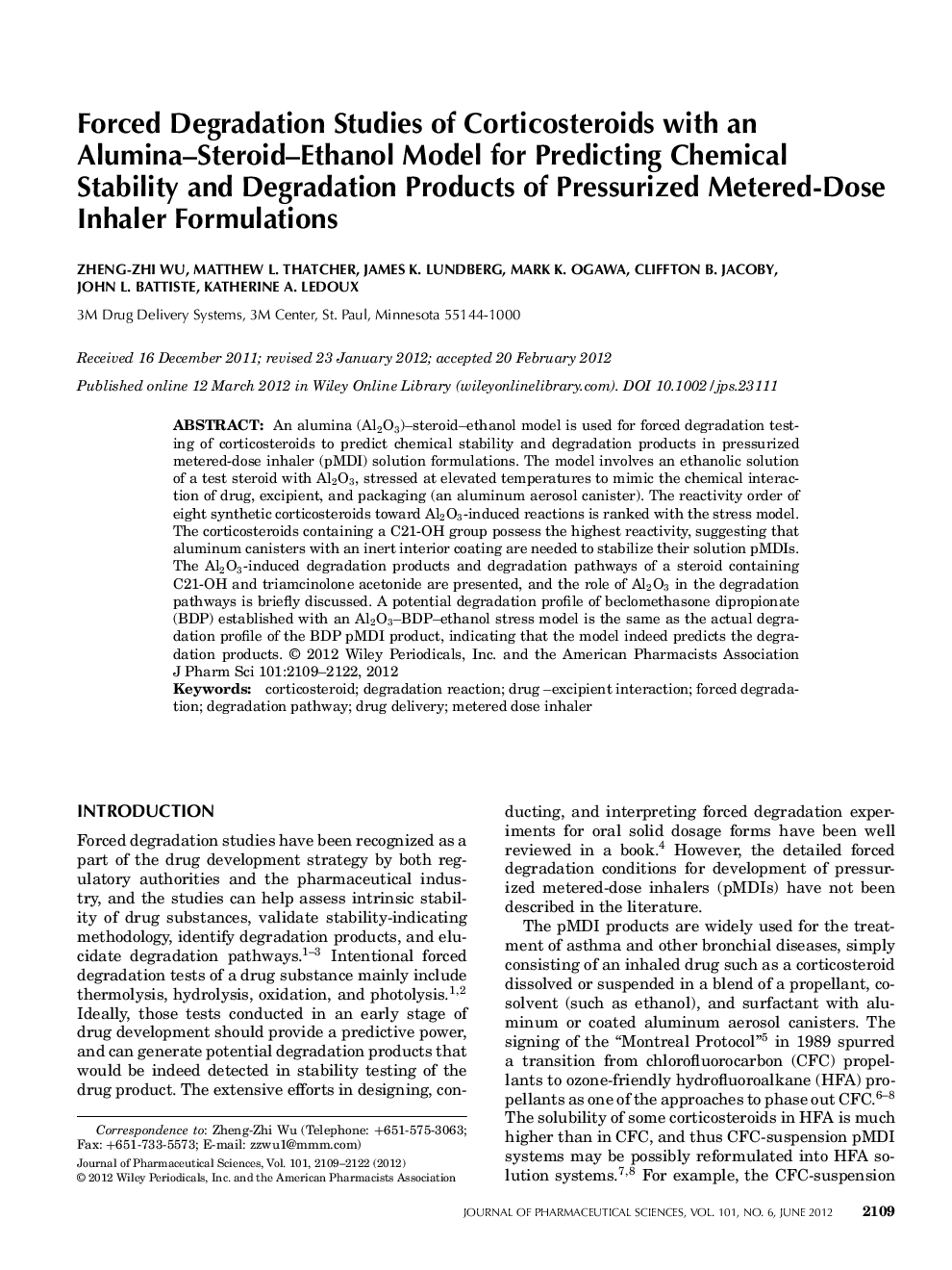| Article ID | Journal | Published Year | Pages | File Type |
|---|---|---|---|---|
| 2485740 | Journal of Pharmaceutical Sciences | 2012 | 14 Pages |
Abstract
An alumina (Al2O3)-steroid-ethanol model is used for forced degradation testing of corticosteroids to predict chemical stability and degradation products in pressurized metered-dose inhaler (pMDI) solution formulations. The model involves an ethanolic solution of a test steroid with Al2O3, stressed at elevated temperatures to mimic the chemical interaction of drug, excipient, and packaging (an aluminum aerosol canister). The reactivity order of eight synthetic corticosteroids toward Al2O3-induced reactions is ranked with the stress model. The corticosteroids containing a C21-OH group possess the highest reactivity, suggesting that aluminum canisters with an inert interior coating are needed to stabilize their solution pMDIs. The Al2O3-induced degradation products and degradation pathways of a steroid containing C21-OH and triamcinolone acetonide are presented, and the role of Al2O3 in the degradation pathways is briefly discussed. A potential degradation profile of beclomethasone dipropionate (BDP) established with an Al2O3-BDP-ethanol stress model is the same as the actual degradation profile of the BDP pMDI product, indicating that the model indeed predicts the degradation products. © 2012 Wiley Periodicals, Inc. and the American Pharmacists Association J Pharm Sci 101:2109-2122, 2012
Keywords
Related Topics
Health Sciences
Pharmacology, Toxicology and Pharmaceutical Science
Drug Discovery
Authors
Zheng-zhi Wu, Matthew L. Thatcher, James K. Lundberg, Mark K. Ogawa, Cliffton B. Jacoby, John L. Battiste, Katherine A. Ledoux,
